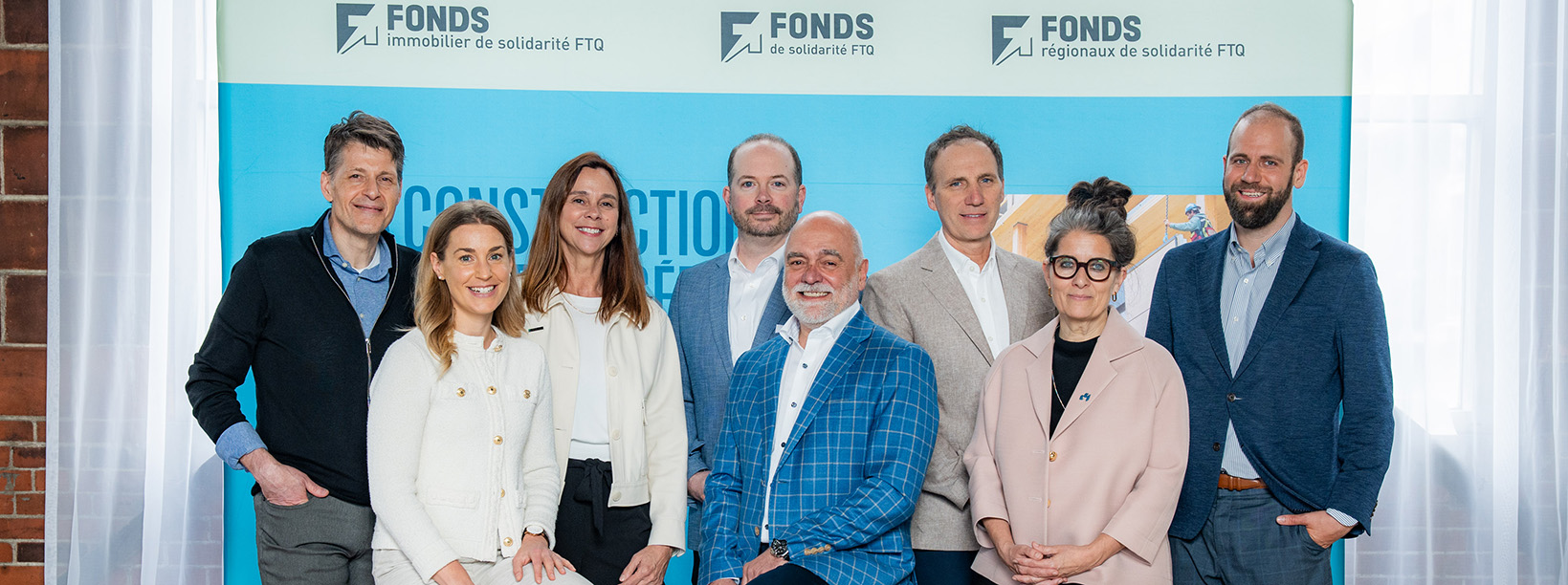Whether we're talking about off-site, modular, manufactured or industrialized construction, the principle is the same: components are produced in a factory and then assembled on site. This approach therefore offers many opportunities for optimization and major competitive advantages.
Here are five good reasons for business leaders and developers to embrace industrialized construction (IC).
1. Time reduction
Speed is one of the main benefits of the industrialized approach. Prefabrication increases efficiency by reducing construction time, resulting in improved profitability and the ability to quickly adapt to changing market needs.
IC is estimated to be up to four times faster than traditional construction methods. As an example, thanks to IC, UTILE Rimouski was able build 155 student housing units in just one year. According to UTILE CEO Gabriel Fournier Filion, this type of project normally takes four years to complete using traditional methods.
Key takeaway:
- the ability to quickly adapt to changing market needs
2. Cost reduction
Due to component standardization, economies of scale and more rigorous upstream planning, IC allows builders to better control unforeseen events and therefore costs. In addition, several workers are moved indoors, in a controlled environment, which improves their working conditions.
Key takeaways:
- Fewer budget overruns
- Reduced risk of unforeseen events on job sites
- Fewer reworks due to greater precision manufacturing
3. Quality control
IC guarantees consistent component quality due to production in a controlled environment using standardized methods and optimized logistics. It also minimizes delays caused by weather conditions, labour availability and other site-related issues. IC thus delivers reliability, an important criterion for investors and users.
Prefabrication results in:
- fewer defects
- better compliance with standards
- fewer reworks on the job site.
4. Greater sustainability
In traditional construction, as much as 30% of the materials delivered to the job site are never used. IC offers major gains in this area.
A recent comparative study (Loizou et al., 2021) revealed significant differences in favour of the industrialized approach:
- a reduction in total waste weight by up to 83.2%
- a reduction of up to 47.9% in waste management costs.
The savings in materials and waste also improves traceability and potential for the circular economy, which is part of the transition toward sustainable real estate.
5. A better way to address the housing shortage
IC makes it possible to build more housing faster without sacrificing quality. It is therefore a concrete response to the housing shortage that is hindering accessibility throughout Québec.
IC offers a way to:
- build more homes, faster
- quickly adapt real estate products to local demand
- ease pressure on communities.
Ready to step into action?
"To integrate industrialized construction, you need to be able to count on strong and experienced partners like the Fonds immobilier de solidarité FTQ. With a proven commitment to innovation, we are here to support you in the transition toward sustainable real estate."
– Martin Raymond, President and CEO, Fonds immobilier de solidarité FTQ
Focusing on industrialized construction, the third edition of Série Bâtir durable [Building Sustainably Series] attracted some 100 industry experts and decision-makers to share their thoughts on this game-changing approach. Listen to our experts explain the benefits of IC (in French only).
Since finding innovative solutions is a collective responsibility, speakers from various backgrounds engaged in discussions that were as promising as they were necessary:
🔹Our colleagues from the Fonds immobilier de solidarité FTQ: Martin Raymond, President and CEO, Serge Cormier, Vice-President, Value Creation, Sustainable Real Estate and Construction Marie-Josée Patenaude, Senior Legal Counsel
🔹Audrey Murray, lawyer, President and CEO, Commission de la construction du Québec
🔹Carlo Carbone, architect and professor of design, UQAM | Université du Québec à Montréal
🔹Gabriel Fournier Filion, CEO, UTILE
🔹Julie Fouquet, Director of Projects and Organizational Development, Construction Longer Inc.
🔹Vincent Gaudreau, President, Fort Insurance & Group Benefits

Industrialized construction offers much more than just productivity gains; it's a new way of thinking, planning and building. Although the approach is not yet widespread in Québec, it is quickly gaining traction as a strategic tool for responding to the pressing challenges facing the real estate sector. One might even say that it is becoming indispensable. The Fonds immobilier de solidarité FTQ is here to help you embark on your IC journey.


